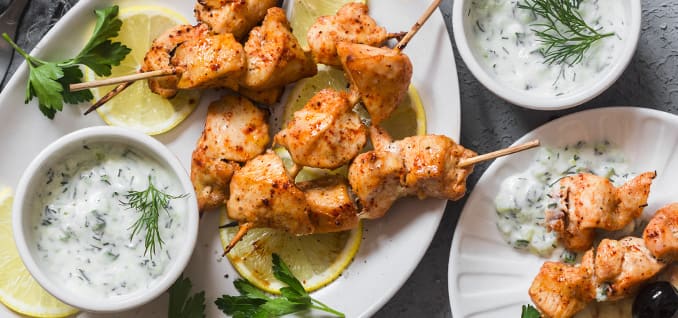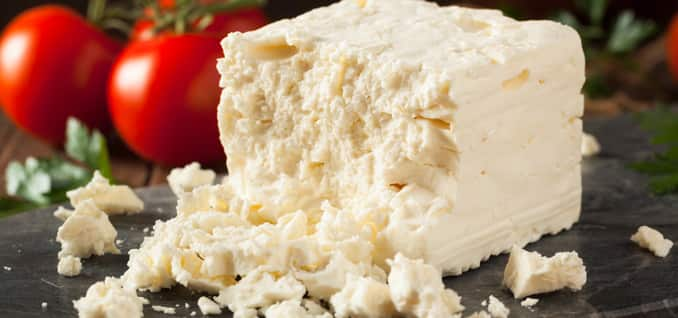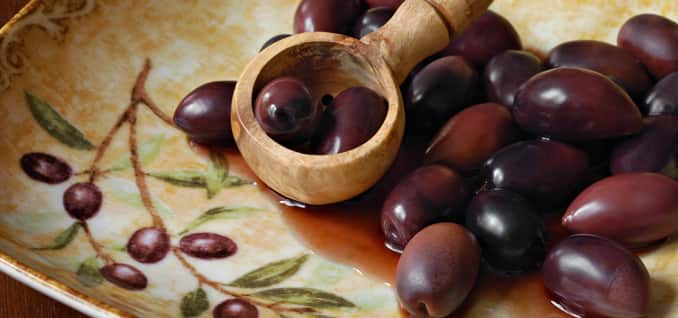Read More
Food of the Gods: Greek Ingredients
By Restaurant Manager Georgios Korakianitis
With influences from Turkey to Italy, Greece has a vast and unique culinary landscape that has captivated a global audience. In Greece, bread, olives and olive oil are the pillars of the Greek table wherever you travel, from an upscale restaurant in Athens to a farmhouse on Crete. You’ll have a hard time finding a family gathered around a table without this trio, not to mention a fresh bottle of wine.

What many travelers do not realize is that Greek cuisine not only features many typical Middle Eastern foods, but is also strongly influenced by Rome, tracing back to when the Romans conquered Greece in the 2nd century. So you’ll see plenty of pasta and sauces alongside yogurt, rice and rich sweets made from nuts, honey and sesame seeds. Arab influences have also left their mark on the southern region of Greece, which means you’ll see spices such as cumin, cinnamon, allspice and cloves in the dishes. Greek coffee, of course, traces its roots to Turkey, while potatoes and tomatoes were brought from the New World after European explorers landed in the Americas.
In Greece using local ingredients isn’t a trend, it’s simply how we cook – using what is in season and what is available in our region. Every Greek meal is fresh and inviting, but it also takes you on a journey through Greece’s history and thousands of years of growing, cooking and eating. As you will discover once you sit down to eat in Greece, no meal is ever “just a meal” – our celebration of life and dining is one in the same. So I invite you to discover more about just a few of the many Greek ingredients featured on board that capture the essence of our joyful and timeless cuisine.

Feta Cheese
The national cheese of Greece, feta, can only be produced in Greece – and only in specific regions such as the Peloponnese, Lesvos and mainland Greece – due to its Protected Designation of Origin. By law, feta is produced from either 100% sheep’s milk or a combination of sheep’s and goat’s milk. It’s the crowning centerpiece on any Greek salad and is a key ingredient in traditional dishes such as spanakopita and feta saganaki – a delicious filo-wrapped feta drenched in honey and coated in sesame.
Caper Leaves
Very difficult to find outside of Greece, caper leaves are typically pickled or boiled and then preserved in jars with brine, similar to caper berries. In fact, when our ships leave Greece, we purchase enough caper leaves to last until the ship is planning to return. Our chefs like to use them
in fish dishes and salads, such as the heirloom tomato salad.
Capers
A bold and briny ingredient, capers are picked, cured and sorted according to size. Harvesting
capers is an arduous process since they can only be picked by hand every spring. They are ideal
for garnishing and add a punch of flavor to sauces, salads, pasta dishes, fish and lamb. We
use them most often on board in our featured Greek fish at the Chef ’s Greek Market Dinner, as well as in a variety of pasta dishes and salads.

Kalamata Olives
This king of Greek table olives is favored around the world. The almond-shaped, deep purple
olive is noted for its rich tangy flavor that is often smoky or has hints of wine. Kalamata olives are typically left on the tree to mature a bit longer and are only harvested once their color begins to turn dark. They are usually stored in olive oil or vinegar, and are typical in Greek salads and make a great tapenade.
Filo Dough
Filo dough is an unleavened tissue-thin dough that is stretched or rolled so thin you can see through it. This type of dough is very versatile since it can be layered, filled, folded, rolled and even turned into cups, flowers or spirals. On board, we use filo in various Greek recipes such as baklava and spanakopita, as well as dishes like strudel, pastilla and tartlets. Filo-based pastries are made by layering many sheets of filo brushed with olive oil or butter, filling them and then baking.
Come live the Greek life with us in the Mediterranean this summer!












